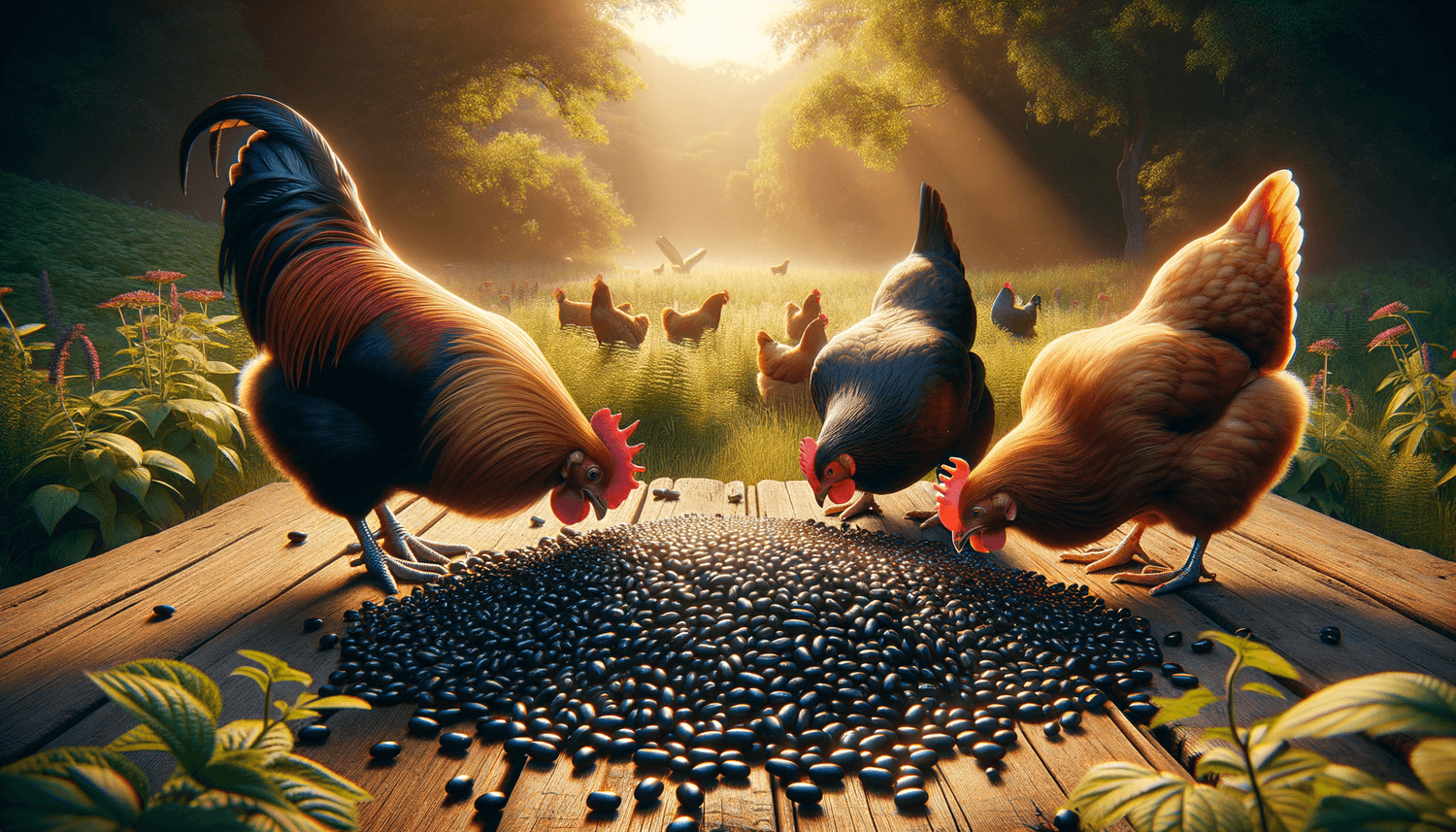Feathers, beaks, and beans, oh my! Welcome, fellow chicken enthusiasts, to another delicious and informative installment of our blog. In today’s peck-tacular post, we’ll be spilling the feed on the subject of chickens and black beans. Is this popular legume a treat your chickens can safely gobble down, or should you avoid sending beans to their backyard buffet? Prepare to be entertained, educated, and downright surprised as we dive into the meal-worthy details, discussing the importance of a balanced diet, the benefits and risks of black beans for our feathery friends, their nutritional value, and how to make sure you’re preparing this potential poultry treat just right. So, loosen your feathers, and let’s get cluckin’!
Can chickens eat black beans?
Yes, chickens can eat black beans, but it’s crucial to serve them cooked and never raw. Uncooked black beans contain a natural toxin called phytohemagglutinin, which can be harmful to your feathery friends. Cooking the beans thoroughly eliminates this toxin, making them a safe and nutritious addition to your chickens’ diet.
Maintaining a balanced diet for backyard chickens
Just like us humans, chickens thrive on a well-balanced diet. It’s essential to provide the right mix of nutrients to keep your flock clucking happily and staying healthy. A chicken’s diet should primarily consist of a high-quality chicken feed, which ensures they get all the necessary nutrients for growth, egg production, and overall well-being. In fact, chicken feed should make up around 80-90% of their diet to maintain optimal health.
Now, who doesn’t love a little variety? Our feathered friends are no exception! The remaining 10-20% of their diet can consist of tasty treats like fruits and vegetables that not only offer additional vitamins and minerals but also provide some much-needed fun and excitement to their daily meals. Experimenting with different safe-to-eat fruits and veggies – including those cooked black beans mentioned earlier – can ensure a well-adjusted and satisfied flock. Just remember to keep treats in moderation, and you’ll have happy, healthy hens, laying delicious eggs for years to come.
Nutritional value of black beans for chickens.
When properly prepared, black beans can offer a range of nutritional benefits to your chickens. These little legumes are packed with essential nutrients that can complement your flock’s regular diet. Black beans are a great source of plant-based protein, ensuring your chickens have the resources needed for muscle development and sustained energy levels.
Aside from being high in protein, black beans also boast a significant amount of fiber, which is beneficial for promoting good digestion and gut health in chickens. Furthermore, black beans contain many vital minerals such as iron, phosphorus, and zinc, which can contribute to your flock’s optimal health and well-being. Iron is needed for blood health, while phosphorus and zinc play a crucial role in skeletal development and maintaining strong immune systems, respectively.
In addition, black beans are a good source of B-vitamins like thiamine, niacin, and riboflavin, which are essential to a chicken’s overall health. Thiamine aids in energy metabolism, niacin assists in maintaining skin and nervous system health, and riboflavin is crucial for growth and cell function. Together, these nutrients can help support your flock’s health by enhancing their natural resistance to various diseases and improving their quality of life.
Nutrition table of black beans for chickens.
| Information | Description |
|---|---|
| Nutritional Value | High protein content, rich in fiber, vitamins (B1, B3, B2), and minerals (iron, phosphorus, zinc) |
| Suggested Serving Size | Small handful per chicken, in moderation, as part of the 10-20% treats in their diet |
| Safe Feeding Practices | Cooked only, never raw, as a treat alongside a well-rounded diet |
| Preparation | Thoroughly cooked, either boiled or pressure cooked, to remove natural toxins; cooled before serving |
| Potential Risks | Raw, uncooked beans contain phytohemagglutinin, which can be toxic to chickens |
| Hydration | Black beans do not contribute significantly to hydration; always provide fresh water for chickens |
| Digestion | Fiber content in black beans improves digestion and gut health |
| Seasonal Availability | Black beans are available year-round, canned or dried |
| Other Benefits | Supports immune system and blood health, contributes to muscle and skeletal development |
Introducing black beans to your chickens
When first offering black beans to your flock, it’s essential to keep an eye on how they react to this new treat. Start with a small amount and observe them for any signs of discomfort or adverse reactions. Chickens can have personal preferences too, so don’t be surprised if not all your birds indulge in the bean feast right away.
Remember to always serve the beans cooked and cooled, since uncooked beans can be harmful. Over time, your chickens are likely to warm up to this nutritious treat and look forward to their occasional bean delicacies.
Variety is key
While black beans can provide many benefits to your chickens, it’s important not to rely solely on them when it comes to treat selection. There is a wide array of fruits, vegetables, and other supplements that can add excitement and nutrition to your chickens’ diet. By providing a diverse range of treats in moderation, you’ll ensure that your flock receives the necessary nutrients, as well as a bit of gastronomic joy.
Final thoughts
In conclusion, cooked black beans can be a nutritious and enjoyable treat for your backyard chickens. They contain essential nutrients like protein, fiber, vitamins, and minerals that can benefit your flock’s overall health. As long as they are prepared safely and fed in moderation, they can be a valuable addition to your chickens’ treat repertoire. So go ahead and let your feathered friends indulge a little – you’ll be rewarded with happy, healthy chickens and farm-fresh eggs!

















